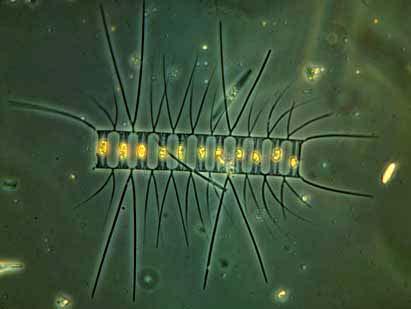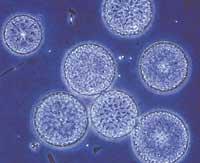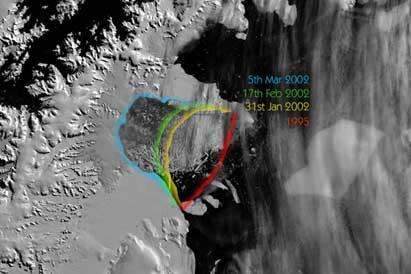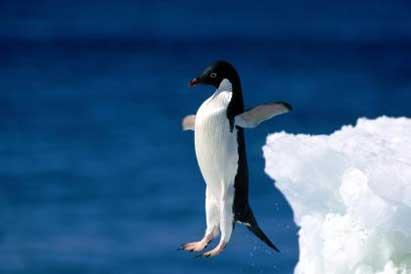Effect of the iceberg on the food chain of Antarctica B-15
2002/04/24 Elhuyar Zientzia

The influence of the iceberg that was released in the Ross Sea of Antarctica in March on the food chain of the beings who live in it has been measured.
Scientists have measured the effect of the iceberg called B-15 on the amount of phytoplankton at sea and have obtained the first results. The number of phytoplankton has decreased by 40% over the years 2000-2001.
Phytoplankton is a group of unicellular algae floating in the sea. It is the base of the marine food chain, so it has great importance for living beings of the area.
It seems that the B-15, due to its size, has prevented the movement of other minor parts of ice being released: It has closed the way to get out of the Ross Sea and has more ice than normal. This makes the surface more covered than normal and the entry of light to water is less than necessary for the growth of phytoplankton.
If there were no iceberg B-15, the wind would send ice pieces from the Ross Sea to open sea. In this way, it would get enough light for phytoplankton to grow and would have normal growth at this time.
It must also be taken into account that 22% of the king penguins and 30% of the Adelie penguins live around the Ross Sea.

Gai honi buruzko eduki gehiago
Elhuyarrek garatutako teknologia






